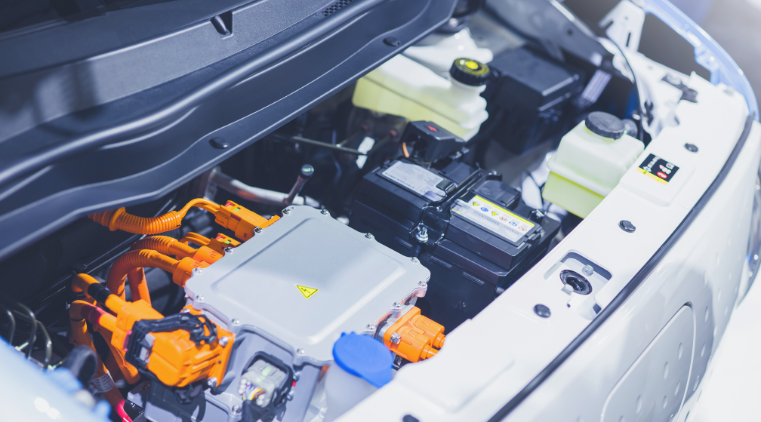Electric Vehicles (EVs) are growing in popularity because of their environmental and economic benefits.
Powered by electricity stored in rechargeable batteries, EVs do not produce the emissions that gas-powered vehicles produce making them better for the environment. Economically, EV owners are projected to save 30 to 60 percent in gasoline costs plus spend less on maintenance and repairs fees over the vehicle’s lifetime because EVs have fewer internal components. No more oil changes! EVs also are efficient because they can turn electricity into movement quickly and use less energy during the process. The cost savings, along with federal government tax credits, buy-in from car manufacturers, new battery technologies and more public charging infrastructure are accelerating the historic transition to EVs.
To further support the transition and make EV ownership more accessible and rewarding, Cleco is Energizing Your Tomorrow with EVs by offering a $250 Level 2 EV Charger incentive to residential customers. This incentive covers approximately 50 percent of the equipment cost. Click here to apply and view terms and conditions.
With the rising and fluctuating costs of traditional gasoline, EVs provide a cost-effective alternative. Take advantage of the fuel savings, tax credits and financial incentives available when you purchase an EV while driving toward a greener, cleaner future.
Benefits of Residential EVs

Save 30 to 60% in Gasoline Costs

Less Maintenance and Repair Costs

More Energy Efficient

Fewer Emissions
Frequently Asked Questions
-
What is an EV?
An EV is a vehicle powered by electricity instead of gasoline or diesel fuel. It utilizes one or more electric motors for movement that are fueled by rechargeable batteries. -
How do EVs work?
EVs work by converting electrical energy from batteries into mechanical energy. The electric motor draws energy from batteries that are recharged when the vehicle is plugged into an electric power source such as a charging station or a standard electrical outlet. -
How far can an EV travel on a single charge?
The driving range of an EV on a single charge depends on several factors, including the vehicle model, battery capacity, driving conditions and driving habits. Modern EVs typically have a range of 100 to 300 miles on a full charge with some high-end models offering a greater range. -
What are the different types of EV chargers?
EV chargers replenish power to EV batteries. The most common types of EV chargers are Level 1, Level 2 and DC fast chargers.- Level 1 charger: Can be plugged into a standard 120-volt electrical outlet using the charger included with the car. This is typically the slowest charging option, adding around 2-5 miles of range per hour of charging. Level 1 chargers are commonly used for overnight charging at home or when access to a dedicated charging station is limited.
- Level 2 charger: Can be plugged into a 240-volt electrical circuit similar to what an electric dryer or oven uses. These chargers provide faster charging speeds compared to Level 1, adding around 10-30 miles of range per hour. Level 2 chargers are commonly found at public charging stations and workplaces. They can be installed at home by a licensed electrician.
- DC Fast Charger: Provide the fastest charging speeds for EVs. These chargers supply a high-voltage DC current directly to the EV's battery, bypassing the onboard charger. They have a wide range of charging speeds and can add as many as 200 miles in 15 minutes, making them ideal for long-distance travel or when you need a quick charge. They are typically found along major highways to meet long-distance travel needs. Some EVs cannot charge at Level 3 charging stations.
-
How long does it take to charge an EV?
Charging time for an EV depends on the charging method and the EV’s battery capacity. Level 1 charging, using a standard household outlet, can take several hours. Level 2 charging, using a dedicated charging station, typically takes around 4 to 8 hours. Level 3 or fast charging, available at select charging stations, can provide a significant charge in as little as 20 to 30 minutes. -
Can I charge my EV at home, and what equipment is needed?
Yes. To charge an EV at your home, you need a standard 120-volt electrical outlet or a home charging station. Using a standard electrical outlet, known as a Level 1 charger, takes longer. A home charging station, also known as a Level 2 charger, provides faster charging but requires professional installation and a dedicated electrical circuit.
Cleco offers a $250 rebate to residential customers who install a Level 2 charger at their home. Click here to learn more and apply for the rebate. Terms and conditions apply. -
How common are battery fires in EVs?
Battery fires are extremely rare and have a significantly lower occurrence rate compared to fires in traditional internal combustion engine vehicles. Safety testing, advanced battery management systems and the use of flame-retardant materials help minimize the risk of battery fires in EV. The automotive industry, regulatory agencies and emergency responders collaborate to ensure high safety standards and provide guidelines for handling any rare incidents. -
What are the different types of EVs?
Plug-in Hybrid EV or PHEV has an internal combustion engine and an electric motor that uses a rechargeable battery. PHEVs have both a gas tank and an electrical charging port.
Battery EV or BEV runs solely on electricity, powered by an electric motor that uses a large rechargeable battery. It needs to be charged using an electrical outlet or charging station.Hybrid EV has an internal combustion engine and an electric motor that uses a small battery. It is charged through regenerative braking, so it does not require charging from an external source. It switches between gasoline and electric power automatically.
-
Are EVs expensive to maintain?
Research shows that EVs are cheaper to maintain compared to traditional diesel- and gas-powered vehicles because they have fewer moving parts which means less maintenance over the vehicle’s lifetime. EVs also do not require oil changes and have longer brake life due to regenerative braking systems, resulting in potential cost savings for owners. -
Does Cleco offer any EV incentives?
Yes. Cleco residential customers who purchase and install a Level 2 EV charger at a residential location served by Cleco are eligible for $250. Click here to apply. Terms and conditions apply. -
Are any tax credits or rebates available for purchasing or leasing an EV?
Yes. Many new EVs qualify for up to a $7,500 tax credit as a result of the federal Inflation Reduction Act. Information on the tax credit is available at https://www.irs.gov/credits-deductions/credits-for-new-clean-vehicles-purchased-in-2023-or-after. Cleco recommends contacting an EV manufacturer or local dealer before purchasing an EV. -
How do I purchase a level 2 charger?
A level 2 charger can be purchased directly from a manufacturer or through an online retailer. The charger must meet Cleco's term and conditions to qualify for the $250 incentive. -
How much does it cost to purchase and install an EV charger?
The average Level 2 Charger costs $500 to $600. Installation costs range from $200 to $1,000, depending on the installer and the amount of work required. -
Who installs EV chargers?
A qualified, independent electrician can install a Level 2 charger for you. -
What questions should I ask the electrician before the installation?
Please ask the electrician or qualified installed the following questions:
- Are you licensed and insured? It's important to make sure the person doing the work is licensed in the state of Louisiana and has appropriate liability insurance.
- Have you installed EV charging stations in the past? It's reassuring to know the person doing the work has experience with EV charging equipment. Some professional service search engines such as Angie’s List and Home Advisor now have search forms specific to EV charging installation services to help with the search. Obtain more than one estimate to ensure fair and accurate pricing. Also, check with your installer to determine if a permit is required.
- Are you licensed and insured? It's important to make sure the person doing the work is licensed in the state of Louisiana and has appropriate liability insurance.
Interested in learning more about Residential EVs?
Talk to our expert.

